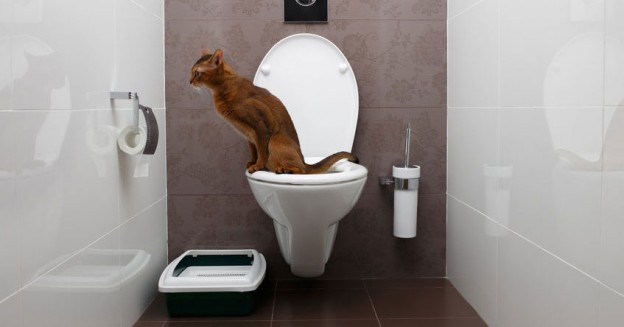Prevent Clogs and Damage: Never Flush Cat Poop Down Your Toilet - Professional Recommendations
Prevent Clogs and Damage: Never Flush Cat Poop Down Your Toilet - Professional Recommendations
Blog Article
The article listed below involving How to Dispose of Cat Poop and Litter Without Plastic Bags is rather engaging. Read on and draw your own personal ideas.

Intro
As feline owners, it's vital to bear in mind how we get rid of our feline pals' waste. While it may appear hassle-free to purge cat poop down the bathroom, this technique can have harmful effects for both the setting and human health.
Ecological Impact
Flushing feline poop introduces hazardous pathogens and bloodsuckers right into the water system, positioning a significant risk to marine ecosystems. These pollutants can adversely influence marine life and compromise water high quality.
Health and wellness Risks
In addition to ecological issues, flushing feline waste can additionally posture wellness risks to people. Pet cat feces may have Toxoplasma gondii, a bloodsucker that can trigger toxoplasmosis-- a possibly extreme ailment, particularly for expecting ladies and people with weakened immune systems.
Alternatives to Flushing
Fortunately, there are safer and more liable methods to take care of feline poop. Consider the following choices:
1. Scoop and Dispose in Trash
The most common technique of disposing of cat poop is to scoop it into a naturally degradable bag and throw it in the trash. Make sure to utilize a specialized trash scoop and get rid of the waste quickly.
2. Use Biodegradable Litter
Choose eco-friendly cat clutter made from products such as corn or wheat. These trashes are environmentally friendly and can be safely taken care of in the trash.
3. Hide in the Yard
If you have a yard, take into consideration burying cat waste in a marked location away from vegetable gardens and water resources. Make certain to dig deep sufficient to prevent contamination of groundwater.
4. Install a Pet Waste Disposal System
Invest in an animal garbage disposal system particularly developed for cat waste. These systems use enzymes to break down the waste, minimizing odor and environmental impact.
Conclusion
Liable pet ownership extends past providing food and shelter-- it likewise involves proper waste monitoring. By refraining from purging cat poop down the bathroom and opting for alternate disposal approaches, we can reduce our ecological impact and protect human health and wellness.
Why You Should Never Flush Cat Poop Down the Toilet
A rose by any other name might smell as sweet, but not all poop is created equal. Toilets, and our sewage systems, are designed for human excrement, not animal waste. It might seem like it couldn’t hurt to toss cat feces into the loo, but it’s not a good idea to flush cat poop in the toilet.
First and foremost, assuming your cat uses a litter box, any waste is going to have litter on it. And even the smallest amount of litter can wreak havoc on plumbing.
Over time, small amounts build up, filling up your septic system. Most litter sold today is clumping; it is made from a type of clay that hardens when it gets wet. Ever tried to scrape old clumps from the bottom of a litter box? You know just how cement-hard it can get!
Now imagine just a small clump of that stuck in your pipes. A simple de-clogger like Drano isn’t going to cut it. And that means it’s going to cost you big time to fix it.
Parasitic Contamination
Believe it or not, your healthy kitty may be harboring a nasty parasite. Only cats excrete Toxoplasma in their feces. Yet it rarely causes serious health issues in the cats that are infected. Most people will be fine too if infected. Only pregnant women and people with compromised immune systems are at risk. (If you’ve ever heard how women who are expecting are excused from litter cleaning duty, Toxoplasma is why.)
But other animals may have a problem if infected with the parasite. And human water treatment systems aren’t designed to handle it. As a result, the systems don’t remove the parasite before discharging wastewater into local waterways. Fish, shellfish, and other marine life — otters in particular — are susceptible to toxoplasma. If exposed, most will end up with brain damage and many will die.
Depending on the species of fish, they may end up on someone’s fish hook and, ultimately on someone’s dinner plate. If that someone has a chronic illness, they’re at risk.
Skip the Toilet Training
We know there are folks out there who like to toilet train their cats. And we give them props, it takes a lot of work. But thanks to the toxoplasma, it’s not a good idea.

I discovered that review about How to Dispose of Cat Poop and Litter Without Plastic Bags while browsing the search engines. Appreciated our post? Please share it. Help other people find it. Thank you for your time invested reading it.
This Website Report this page